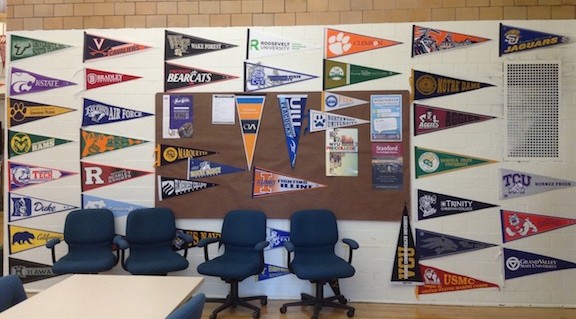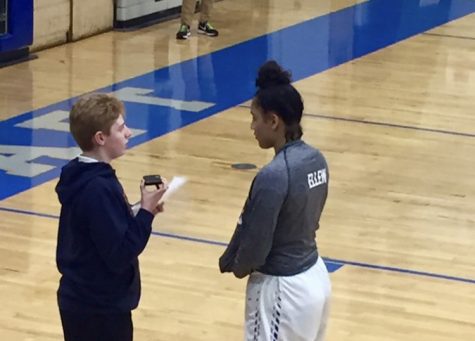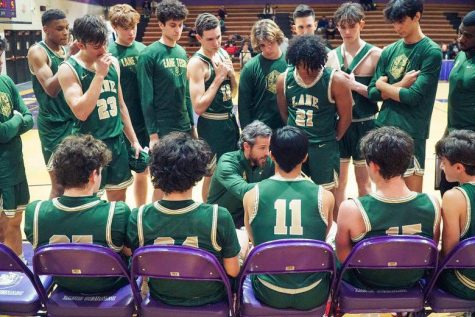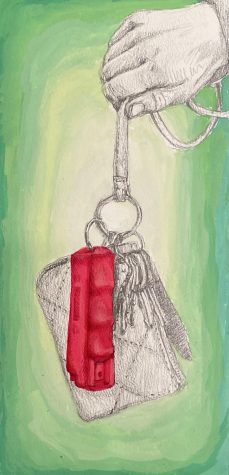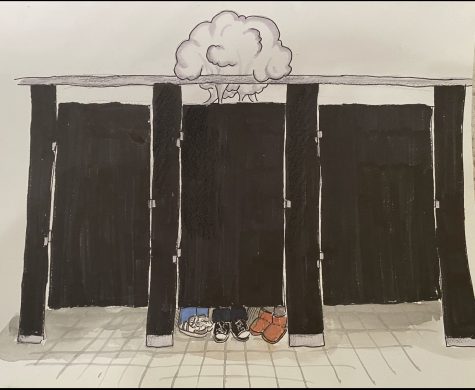Colleges collect their prize students
October 14, 2014
Admissions directors point their brochures carefully, and college applications season is open: the game this year is the class of 2015.
Students are under fire, trying to get grades up, essays done, letters of recommendation in, and finally clicking the overpowering blue button that reads “submit.” College can be overwhelming and exciting but there are a few things to keep in mind before finally pressing “send.”
Colleges do not get to see everything a senior has done for the last four years of school. Students are challenged to show who they are through snapshots of essays, a list of extracurricular activities, a transcript, and letters of recommendation. By the fall of senior year all that is left to be done is write essays, request transcripts, and ask for letters of recommendation. Lane Counselor Ms. Console runs the College and Career Center website, and currently hosts the CCC, which is fully equipped with computers available for students any time after 8:30 a.m. This computer lab is reserved for working on college and career based tasks.
“One of the most important things to know is the difference between Early Action and Early Decision,” Ms. Console said. Early Action is a non-binding application that just means that seniors will hear back from a school earlier than if they were to apply in January. Early Decision is binding. That means that seniors are committed to going to a school regardless of financial aid packages. One thing to keep in mind is that schools like Tulane and Georgetown have special rules about their Early Action admissions process. It is important to look into the rules of each school’s application process.
“All seniors should have three applications in by November 15,” Console said. Many senior English classes are just beginning to work on filling out a whole ap- plication. With the resources available on Naviance for resumes, the Common Application’s “plug and chug” method can make filling out questions about activities almost painless.
Both the counseling department and the CCC are filled to the brim with college matching information. If seniors don’t yet know what they want to study in college, that is OK, but it is important to at least start thinking about it. Whether applying to a school because it has great weather, or the perfect pre-med program, it is key to think about why this school is important.
To get into that perfect school, seniors can do a few essential things to push them above and beyond their list of extracurriculars and their grades. This extra push can come from the essay or the letters of recommendation.
This year Lane is facing major changes in the counseling department. Almost every senior division has a new counselor. In order to be more than just test scores it is important to fill out the “Senior Info Sheet” on Naviance and stop in to get to know the new counselors.
Teachers and counselors need two weeks’ notice on letters of recommendation. The sooner teachers know about requests the more likely it will be a well-written letter and not just another formula.
Essays are one of the last things that seniors can do to display who they are and explain why a college should want them. Essays have been written about everything. The task is not to address a subject no one else has, but instead to explain why it makes you different from the thousands of other applicants.
Colleges are interested in who each applicant is as both a person and a student. That means essays are evaluated on both quality and content. Lane counselors and English teachers are always happy to take a look, but like letters of recommendation, it is important to give them ample time to look at it.
If seniors have any questions about individual schools, the admissions office is there to help and can be an invaluable resource. College look to see that students have taken an interest and initiative, but the best thing a student can do when applying to college is to keep calm and stay on deadline.

